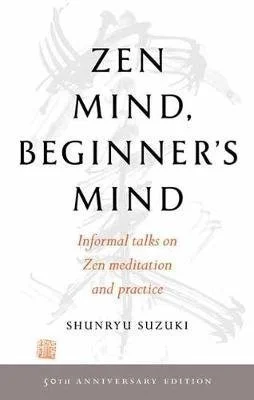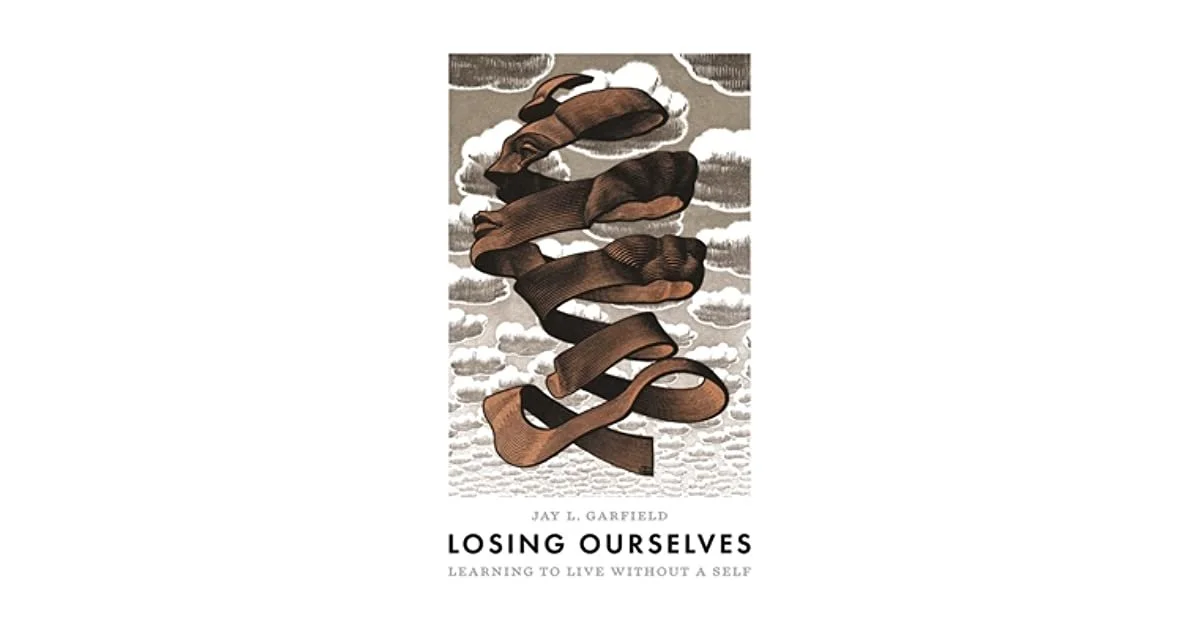A Reflective Educator’s Reading List
Good hearts and minds have wrestled with questions of great teaching, learning, and education since the dawn of civilization. Those committed to the craft of teaching stand to learn much from our badass intellectual forbearers. Consider what follows a starter kit for one interested in conscious teaching and living. It is by no means comprehensive but will give the wakeful educator some good grist for the mill. On occasion I’ll update this list with additions. Less frequently, I’ll remove a title from the list as my thoughts about the nature of this work evolves. And I’ll do my best to keep the whole thing organized.
(NOTE: I am not getting paid for links to the books below. I just think they’re worth your time.)
Shunryu Suzuki is often regarded as the founding father of Zen in America. A Japanese priest of the Soto lineage, in which I practice, he taught in the United States from 1959 until his death and influenced a generation of Zen teachers and students to follow. His teachings are at once simple and challenging, gentle and fierce, clear and paradoxical. If you want to get a grounding in Zen for your teaching practice, and for the living in general, there are fewer better places to begin than with Suzuki Roshi.
Losing Ourselves by Jay Garfield. No book that i’ve read in the past 5 years has more clearly articulated what I’ve noted on the meditation cushion but struggled to articulate beyond it, namely that our typical sense of our self is wildly off-base. In Losing Ourselves, Garfield offers a dense but clear treatment of the nature of the self and all the ways that we cling to fictional views of being which cloud our judgment. If we’re going teach and live well, I can imagine no better starting point than a dismantling of our self-centered dreams.
The Allure of Order by John Mehta. In The Allure of Order, Mehta recounts a century of attempts at revitalizing public education, and puts forward a truly new agenda to reach this elusive goal. Not once, not twice, but three separate times-in the Progressive Era, the 1960s and '70s, and NCLB-reformers have hit upon the same idea for remaking schools. Over and over again, outsiders have been fascinated by the promise of scientific management and have attempted to apply principles of rational administration from above. Our current pattern is to draw less than our most talented people into teaching, equip them with little relevant knowledge, train them minimally, put them in a weak welfare state, and then hold them accountable when they predictably do not achieve what we seek. Mehta argues that we need something different. Order it here.
The Headmaster, by John McPhee. Starting in 1902 at a country school that had an enrollment of fourteen, Frank Boyden built an academy that has long since taken its place on a level with Andover and Exeter. Boyden, who died in 1972, was the school's headmaster for sixty-six years. John McPhee portrays a remarkable man "at the near end of a skein of magnanimous despots who...created enduring schools through their own individual energies, maintained them under their own absolute rule, and left them forever imprinted with their own personalities." McPhee’s pen is masterful. And you’ll never think about school the same way again after see it’s possibility through Boyden’s eyes. Order it here.
The Ignorant Schoolmaster byJacques Rancière. Knowing no Flemish, Jacotot found himself able to teach in French to Flemish students who knew no French; knowledge, Jacotot concluded, was not necessary to teach, nor explication necessary to learn. The results of this unusual experiment in pedagogy led him to announce that all people were equally intelligent. From this postulate, Jacotot devised a philosophy and a method for what he called "intellectual emancipation"―a method that would allow, for instance, illiterate parents to themselves teach their children how to read. It’ll completely smash your notions of what ‘knowledge’ is required to teach well. Order it here.
The Beautiful Risk of Education (Interventions: Education, Philosophy, and Culture) by Gert Biesta. A favorite among heady academic types, Biesta’s thoughts on subjectification, qualification, and socialization are worth the cost of the book. Order it here.
Pedagogy of the Oppressed by Paulo Friere. First published in Portuguese in 1968, Pedagogy of the Oppressed was translated and published in English in 1970. The methodology of the late Paulo Freire has helped to empower countless impoverished and illiterate people throughout the world. Freire's work has taken on special urgency in the United States and Western Europe, where the creation of a permanent underclass among the underprivileged and minorities in cities and urban centers is increasingly accepted as the norm. This is a must read for anyone who wants students to wake up and grow up. Order it here.
The Skillful Teacher by Jon Saphier. Saphier’s comprehensive masterwork offers an encyclopedic take the habits, mindsets, and techniques of skillful teaching. It’s worthy of daily devotional study. One could read it daily from end to end and repeat in perpetuity until death and learn something new each day. Order it here.
Teach Like a Champion by Doug Lemov. Many understandably celebrate and malign Lemov’s technique-focused ‘how to’ for teachers. From the standpoint of the conscious teacher, Lemov’s clearest contribution, despite some missteps, is this: it treats teaching as a learnable craft. Read it. Question it. Argue with it. Above all learn from it. Order it here.
Teaching as a Subversive Activity by Neil Postman and Charles Weingartner. A seminal read of the American 20th century protest era, Postman and Weingartner offer no-holds-barred assault on outdated teaching methods—with dramatic and practical proposals on how education can be made relevant to today's world. It’s so timely that it may as well have been written yesterday. Order it here.
The Whole-Brain Child by Daniel Siegel and Tina Payne Bryson. A neuropsychiatrist and psychotherapist offer insight on how to mindfully meet the whirling, developing minds of children. A must read for every educator. Order it here.
The Wisdom of Insecurity by Alan Watts. Watts, the celebrated translator of Zen for westerners, helps us see how we become aware, and how (more often) we shirk awareness. It’s hard to be a conscious teacher without a good foundation in what it means to be aware, and Watt's’ offering offers the clear and sure footing. Order it here.
Young, Gifted, & Black by Teresa Perry, et al. In three separate but aligned essays, Theresa Perry, Claude Steele, and Asa Hilliard place students' social identity as African-Americans at the very center of the discussion. They all argue that the unique social and cultural position Black students occupy, in a society which often devalues and stereotypes African American identity, fundamentally shapes students' experience of school and sets up unique obstacles. And they all argue that a proper understanding of the forces at work can lead to practical, powerful methods for promoting high achievement for all kids. Order it here.













